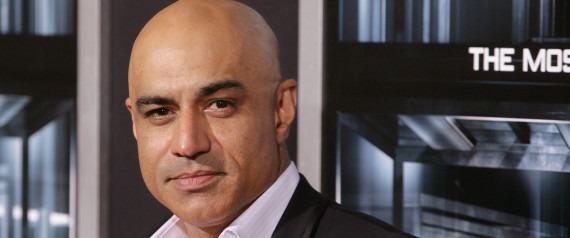Actor Faran Tahir has played his fair share of criminals. One of the most high-profile was the archvillain Raza, who Tahir played alongside Robert Downey Jr. in the 2008 movie “Iron Man,” directed by Jon Favreau.
Tony Stark, the protagonist played by Downey, is captured in the Afghan desert by a group of terrorists under the leadership of Raza. Tahir, who is Muslim and comes from a Pakistani-American family, said he was concerned at first that the character was too overtly religious.
In the original script, the actor said, many allusions were made to the character’s faith, which many might have assumed was an extremist branch of Islam given the placement in the Middle East and public awareness about groups like the Taliban and al Qaeda.
These allusions did not sit well with Tahir.
“Even when you look at the whole idea of faith-based terrorism, at the very base level it has very little to do with faith,” he told The Huffington Post. “It has a lot to do with geographic control and personal power.”
Tahir said he worked with the production team to re-envision Raza as more of a power-hungry leader and less of a religious zealot.
“‘Let’s try to find a different kind of ideology,'” Tahir recalled thinking at the time. “That dialogue was not only — to my delight — accepted, but then was made part of the whole storyline.”
The Iron Man scenario is one Tahir encounters often. Whenever he reads a script or considers a new role, he takes into account the religious background and cultural heritage he represents and how that might be portrayed in his prospective character.
“When I see a script where I think this is really written with some level of bias or there is some vitriol that’s beyond what I can digest, either I will engage people [in a conversation] or make a decision not to be a part of it,” the actor said.
“Sometimes it’s a kick in the wallet, but I’d rather take a kick in the wallet than live with the despair or the guilt of doing it.”
Tahir has reason to be cautious. A 2007 study conducted by the Islamic Human Rights Commission and entitled “The British Media and Muslim Representation: The Ideology of Demonisation” looked at the portrayal of Islam and Muslims in Western popular media, including American cinema. The researchers argued that Hollywood and the news media influence how the public views Muslims — often depicting them as frightening and “other.”
A script written with a Muslim villain might not ever include discussion on why the character does the evil deeds he or she does. This serves not only to promote stereotypes, Tahir said, but also makes for a less realistic and less compelling storyline.
“If it’s written with very broad strokes that just shows the entire faith or entire group of people are brainwashed to do this and there’s no redeeming layer to the character, then I think we’re doing a disservice,” he argued.
A large part of the problem, the study found — and Tahir echoed — is that the negative images of Muslims are often the only ones to be found, with the exception of a few sporadic examples like Spike Lee’s 1992 “Malcolm X” biopic and Marc Forster’s 2007 film “Kite Runner,” based on the book by Afghan-American writer Khaled Hosseini.
“Sometimes it has to do with the fact that there’s not enough knowledge out there to be able to write these characters in the way I would like them to do it,” Tahir said.
“Even if you want me to play the bad, evil guy, OK, I’ll play it,” he added. “But in the same storyline is there another Muslim character which is not that? Is there another point of view that we are giving? It would be nice to have that counterpoint.”
Read the rest of the article published on The Huffington Post on 8 April 2015




